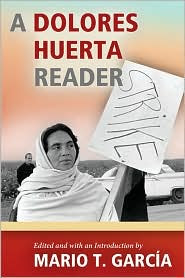Democracy and Civil Disobedience: Philosophy Cafe @ Powell's Books: Aug. 1

Yesterday, I participated in the Philosophy Cafe at Powell's Books. Its a new event organized by a new friend of mine, Brian Eliot, and his colleague, John Farnum. The hope is to involve everyday folks in philosophical discussions about a wide variety of topics. My talk yesterday focused on "Democracy and Civil Disobedience". Brian and John told me we reached the highest audience numbers with this one (about 55 people total). After I gave my presentation, the audience asked some questions and then they were broken up into small discussion circles. John, Brian, and I listened in to some of the conversations. There was some great soul searching about whether or not people thought they would be willing to put their lives, jobs, reputations on the line for justice and whether non-religious people could have the same fortitude to engage in social justice work and nonviolence as figures like Gandhi, King, or Chavez, who were all deeply spiritual men. (I pointed out Barbara Deming's, work as a secular theory of nonviolence)

The talk I gave provided two views on the legitimacy of civil disobedience (which I defined, following Rawls, as "the public, conscientious, and nonviolent refusal to obey laws or commands of the government in order to bring a change in such laws or commands").
I offered two arguments from Socrates in the Crito which say that CD should not be allowed because: 1) laws and government institutions are "like parents" in that they provide the conditions for nurturance for a person to live and flourish and as such, they are owed obedience and gratitude by citizens who benefit from them; and 2) to the extent that a citizen stays in a society and abides by the laws and government power without dissent, then an implicit contract is formed in which the citizen agrees to accept the legitimacy of the laws and government. If a citizen does not like the laws, then he can leave; if he does not, he accepts them and the power they hold over him.
I then countered with Martin Luther King's point that even if a rule is legal this does not make it moral. There are just laws and unjust laws. While we have a legal and moral responsibility to obey just laws, we have a moral duty to disobey unjust laws.
I finished by talking about why nonviolence is the method with which we ought to think about making social change. Sometimes, when the injustices of our society are grasped in their enormity, it might seem that only violent upheaval can make the changes needed so that people will not suffer or die any longer. I offered some quotes by Cesar Chavez on how armed struggle rarely results in a situation of social justice and ended with the views of Barbara Deming. She says that nonviolence is the most ethical way to resist evil because it resists oppression "with one hand", but offers the other hand to the oppressor to reassure them that we do not seek their destruction or suffering.
Labels: american democracy, cesar chavez, engaged philosophy, human rights, nonviolence












